Up to 100 British tourists have fallen ill after a sickness bug swept through an Egyptian holiday resort.
Several were still on intravenous drips in their hotel rooms last night at the four-star Coral Sea Waterworld complex.
 Angry holidaymakers blamed the virulent bug on dirty buffet food containers, utensils and tables and poor hygiene.
Angry holidaymakers blamed the virulent bug on dirty buffet food containers, utensils and tables and poor hygiene.
It has spread so fast that resort bosses have had to draft in extra doctors to cope with the sickness outbreak.
Legal firm Simpson Millar, acting for holidaymakers staying at the hotel, say they have already had 50 cases of illness reported to them in the last 24 hours alone.
Lawyer Nick Harris said: “I have been inundated with people contacting me about ruined holidays. Some of the reports I have heard are horrific.
“Bedridden families with intravenous drips in their arms and taking it in turns to be sick and use the toilet. We strongly suspect it’s a bacterial poisoning. It looks like up to 100 Brits are affected.
“They have spent the majority of their stay confined to their bedrooms and many of them on IV drips”.
Staff have been kitted out with latex gloves and hand sanitisers to try and stem the spread of infection.
Victims have been diagnosed with Shigella – a bug commonly associated with food poisoning and poor hygiene.
It is closely related to salmonella, which doctors in the resort have also been testing for.
Angry tourists have posting about their ordeal on travel site TripAdvisor.

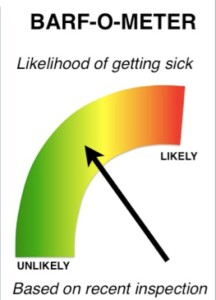

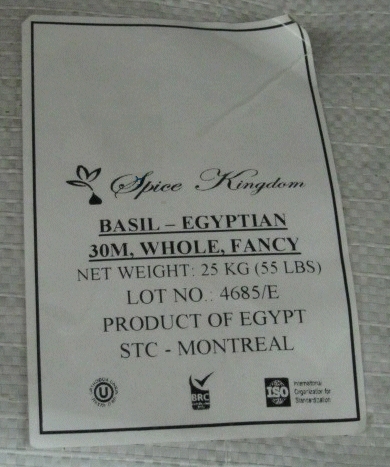 brand dried Egyptian Basil described below because the product may be contaminated with Salmonella.
brand dried Egyptian Basil described below because the product may be contaminated with Salmonella. to ensure the integrity of grain and plant exports.
to ensure the integrity of grain and plant exports. bacteria in Egyptian fenugreek seed have turned up negative, said Salah Mu`awad, the chief of the Egyptian Agriculture Ministry services and follow up division.
bacteria in Egyptian fenugreek seed have turned up negative, said Salah Mu`awad, the chief of the Egyptian Agriculture Ministry services and follow up division..jpg) them acceptable.
them acceptable.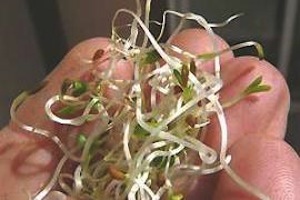 Germany and one focused around the French city of Bordeaux.
Germany and one focused around the French city of Bordeaux. .jpg) Egyptian fenugreek seeds exported in 2009 and 2010 may have been implicated in the outbreak were "completely untrue."??
Egyptian fenugreek seeds exported in 2009 and 2010 may have been implicated in the outbreak were "completely untrue."??.jpg) juices and individual dishes composed of white grapes, tomatoes, sesame seeds, chives, industrially produced soft cheese and fruit, the report said.
juices and individual dishes composed of white grapes, tomatoes, sesame seeds, chives, industrially produced soft cheese and fruit, the report said.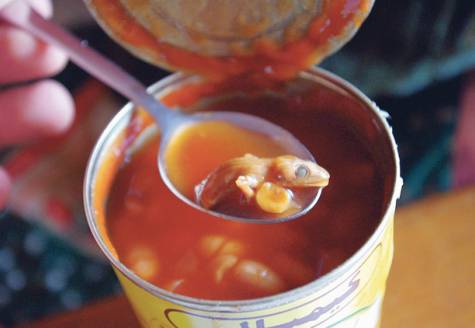 My ex-wife the veterinarian did a few cool things, in addition to the four daughters, and one was to surprise me with two kittens from the vet college at the University of Guelph. I named them Clark and Kent. I’ve hung out with dogs and cats ever since.
My ex-wife the veterinarian did a few cool things, in addition to the four daughters, and one was to surprise me with two kittens from the vet college at the University of Guelph. I named them Clark and Kent. I’ve hung out with dogs and cats ever since.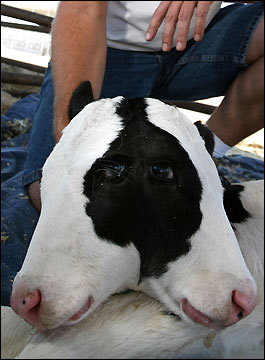 happened again in Egypt, where a farmer says his cow has given birth to a two-headed calf that he calls a "divine miracle."
happened again in Egypt, where a farmer says his cow has given birth to a two-headed calf that he calls a "divine miracle."